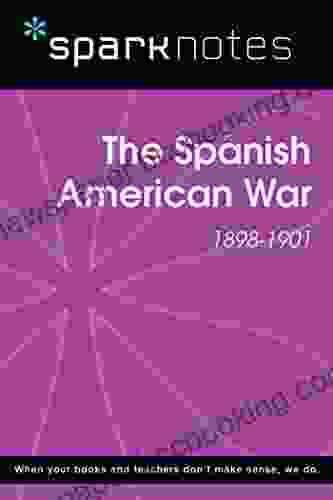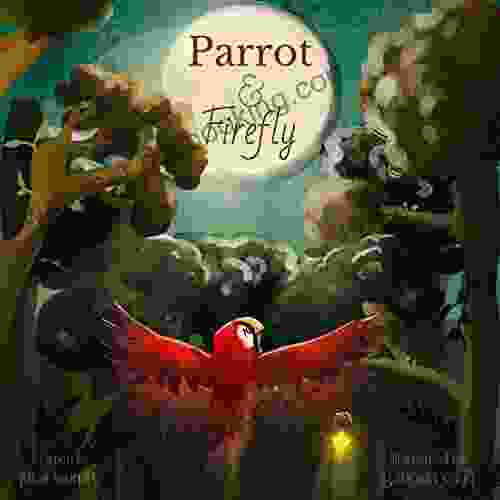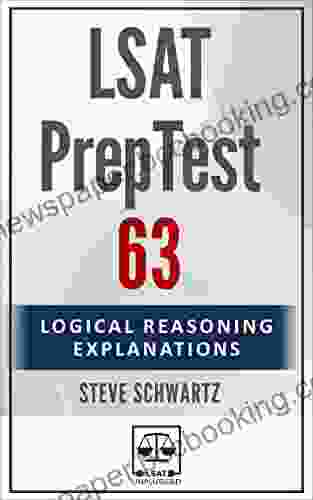The Spanish-American War 1898-1901: SparkNotes History Guide

The Spanish-American War was a conflict between Spain and the United States over the issue of Cuba, which had been a Spanish colony for centuries. The United States had long been interested in Cuba, and tensions between the two countries had been growing in the late 19th century. In 1898, the sinking of the USS Maine in Havana harbor led to the outbreak of war.
The Spanish-American War was a short and decisive conflict. The United States quickly defeated the Spanish navy, and American troops landed in Cuba, Puerto Rico, and the Philippines. By August 1898, Spain had surrendered, and the United States had gained control of Cuba, Puerto Rico, Guam, and the Philippines.
4.3 out of 5
| Language | : | English |
| File size | : | 192 KB |
| Text-to-Speech | : | Enabled |
| Screen Reader | : | Supported |
| Enhanced typesetting | : | Enabled |
| Word Wise | : | Enabled |
| Print length | : | 62 pages |
The Spanish-American War was a turning point in American history. It marked the end of the United States' isolationist foreign policy and the beginning of its rise to global power. The war also had a significant impact on Cuba, Puerto Rico, and the Philippines. Cuba gained its independence from Spain, while Puerto Rico and the Philippines became American colonies.
Causes of the Spanish-American War
There were a number of factors that led to the Spanish-American War. These included:
- The Cuban rebellion against Spanish rule
- The sinking of the USS Maine in Havana harbor
- American public opinion, which was largely in favor of war
- The United States' desire to expand its empire
The Cuban rebellion
The Cuban rebellion against Spanish rule began in 1895. The rebels were led by José Martí, a Cuban nationalist who believed that Cuba should be independent from Spain. The Spanish government responded to the rebellion with a brutal campaign of repression, which included the use of concentration camps.
The Cuban rebellion caused a great deal of sympathy in the United States. Many Americans believed that the Cubans were fighting for their freedom, and they wanted the United States to intervene on their behalf.
Sinking of the USS Maine
On February 15, 1898, the USS Maine exploded in Havana harbor. The explosion killed 266 American sailors. The cause of the explosion was never determined, but many Americans believed that the Spanish had sabotaged the ship.
The sinking of the USS Maine caused a wave of anger in the United States. The American public demanded that Spain be held accountable for the deaths of the sailors, and President William McKinley sent a message to Congress asking for a declaration of war.
American public opinion
American public opinion was largely in favor of war with Spain. The sinking of the USS Maine had convinced many Americans that Spain was a threat to the United States. In addition, many Americans believed that the United States had a duty to help the Cubans gain their independence.
American expansionism
The United States had been expanding its empire in the late 19th century. In 1898, the United States had already acquired Alaska, Hawaii, and Guam. The Spanish-American War gave the United States an opportunity to further expand its empire by acquiring Cuba, Puerto Rico, and the Philippines.
Course of the Spanish-American War
The Spanish-American War began on April 25, 1898, with the declaration of war by the United States. The United States quickly defeated the Spanish navy, and American troops landed in Cuba, Puerto Rico, and the Philippines.
Naval battles
The Spanish-American War was fought at sea and on land. The naval battles were decisive in the American victory. The United States Navy was much larger and more powerful than the Spanish Navy, and American ships easily defeated the Spanish in a series of battles.
The most famous naval battle of the Spanish-American War was the Battle of Manila Bay. On May 1, 1898, the American fleet under the command of Commodore George Dewey destroyed the Spanish fleet in Manila Bay. The Battle of Manila Bay gave the United States control of the Philippines.
Land battles
The United States Army also played a major role in the Spanish-American War. American troops landed in Cuba, Puerto Rico, and the Philippines, and they quickly defeated the Spanish forces. The American army was much better equipped and trained than the Spanish army, and the Americans were able to quickly overcome the Spanish resistance.
The most famous land battle of the Spanish-American War was the Battle of San Juan Hill. On July 1, 1898, American troops under the command of General William Shafter attacked the Spanish forces at San Juan Hill, Cuba. The Americans were victorious in the battle, and the Spanish forces were forced to retreat.
Surrender of Spain
On August 12, 1898, Spain surrendered to the United States. The Treaty of Paris, which ended the war, was signed on December 10, 1898. The treaty gave the United States control of Cuba, Puerto Rico, Guam, and the Philippines.
Consequences of the Spanish-American War
The Spanish-American War had a number of consequences for the United States, Cuba, Puerto Rico, and the Philippines.
For the United States
The Spanish-American War marked the end of the United States' isolationist foreign policy. The war showed that the United States was now a major world power, and it led the United States to become more involved in international affairs.
4.3 out of 5
| Language | : | English |
| File size | : | 192 KB |
| Text-to-Speech | : | Enabled |
| Screen Reader | : | Supported |
| Enhanced typesetting | : | Enabled |
| Word Wise | : | Enabled |
| Print length | : | 62 pages |
Do you want to contribute by writing guest posts on this blog?
Please contact us and send us a resume of previous articles that you have written.
 Book
Book Novel
Novel Page
Page Chapter
Chapter Text
Text Story
Story Genre
Genre Reader
Reader Library
Library Paperback
Paperback E-book
E-book Magazine
Magazine Newspaper
Newspaper Paragraph
Paragraph Sentence
Sentence Bookmark
Bookmark Shelf
Shelf Glossary
Glossary Bibliography
Bibliography Foreword
Foreword Preface
Preface Synopsis
Synopsis Annotation
Annotation Footnote
Footnote Manuscript
Manuscript Scroll
Scroll Codex
Codex Tome
Tome Bestseller
Bestseller Classics
Classics Library card
Library card Narrative
Narrative Biography
Biography Autobiography
Autobiography Memoir
Memoir Reference
Reference Encyclopedia
Encyclopedia Karen Shepley
Karen Shepley Lucinda Hawksley
Lucinda Hawksley Julia Albu
Julia Albu Sally Lewis
Sally Lewis Valerie Steele
Valerie Steele Kayla Alexander
Kayla Alexander Karen Coleman
Karen Coleman Lauren Kahl
Lauren Kahl Mary Breu
Mary Breu Karl Shook
Karl Shook Shelley Metten M S Ph D
Shelley Metten M S Ph D Nathan Doneen
Nathan Doneen Kobad Ghandy
Kobad Ghandy Karen Bonnell
Karen Bonnell Mary Healy
Mary Healy Kerry Rupe
Kerry Rupe Kimberly Marlowe Hartnett
Kimberly Marlowe Hartnett Randy Kadish
Randy Kadish Maggie Marr
Maggie Marr Pete Jordan
Pete Jordan
Light bulbAdvertise smarter! Our strategic ad space ensures maximum exposure. Reserve your spot today!

 Dominic SimmonsThe Comedy of Errors: No Fear Shakespeare – Unlocking the Bard's Hilarious...
Dominic SimmonsThe Comedy of Errors: No Fear Shakespeare – Unlocking the Bard's Hilarious...
 Blake BellMCAT Behavioral Sciences Review 2024 Online: Your Path to Behavioral Sciences...
Blake BellMCAT Behavioral Sciences Review 2024 Online: Your Path to Behavioral Sciences... Joseph ConradFollow ·18.8k
Joseph ConradFollow ·18.8k Stuart BlairFollow ·4.1k
Stuart BlairFollow ·4.1k James HayesFollow ·2.9k
James HayesFollow ·2.9k Casey BellFollow ·12.1k
Casey BellFollow ·12.1k Demetrius CarterFollow ·19k
Demetrius CarterFollow ·19k Joel MitchellFollow ·15.7k
Joel MitchellFollow ·15.7k Cole PowellFollow ·2.1k
Cole PowellFollow ·2.1k Milton BellFollow ·2k
Milton BellFollow ·2k
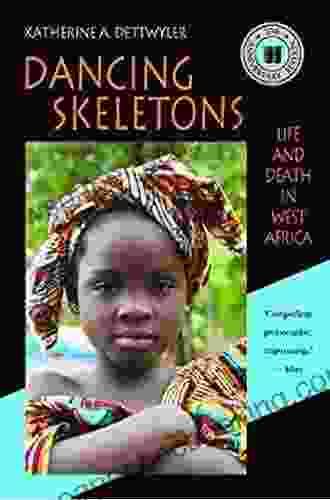
 Drew Bell
Drew BellLife and Death in West Africa: A Groundbreaking Account...
A Journey Through...
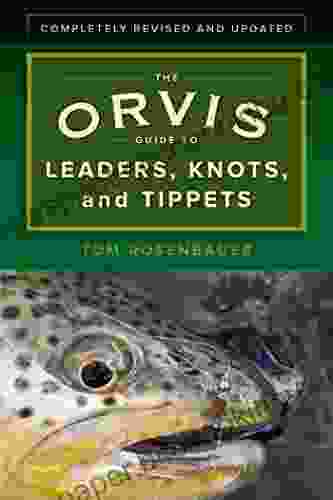
 Stanley Bell
Stanley BellMaster the Art of Fly Fishing Line Management: A...
Are you an avid fly...

 Ernest Powell
Ernest PowellUnleash Your Entrepreneurial Spirit: A Comprehensive...
In the competitive...

 Derrick Hughes
Derrick HughesMaster Your Ride: The Ultimate Guide to Road Bike...
Are you ready to elevate your cycling...
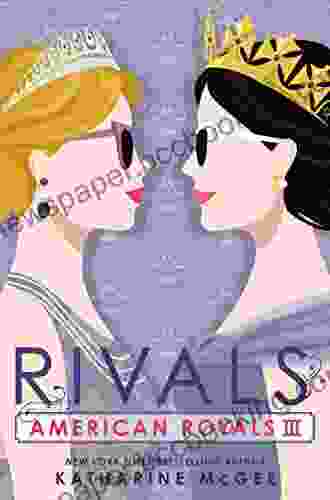
 Camden Mitchell
Camden MitchellUnveiling the Enchanting World of American Royals III:...
Embark on a Captivating Royal Saga: American...
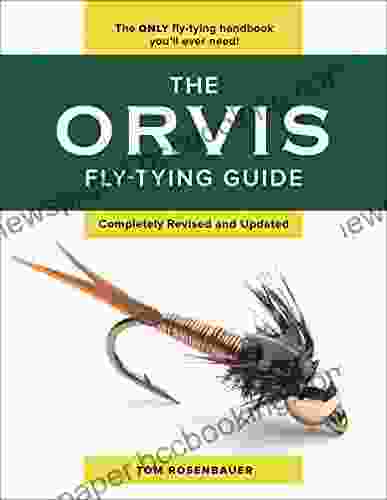
 Richard Simmons
Richard SimmonsUnveiling the Secrets of Fly Tying: A Comprehensive...
In the realm of...
4.3 out of 5
| Language | : | English |
| File size | : | 192 KB |
| Text-to-Speech | : | Enabled |
| Screen Reader | : | Supported |
| Enhanced typesetting | : | Enabled |
| Word Wise | : | Enabled |
| Print length | : | 62 pages |


